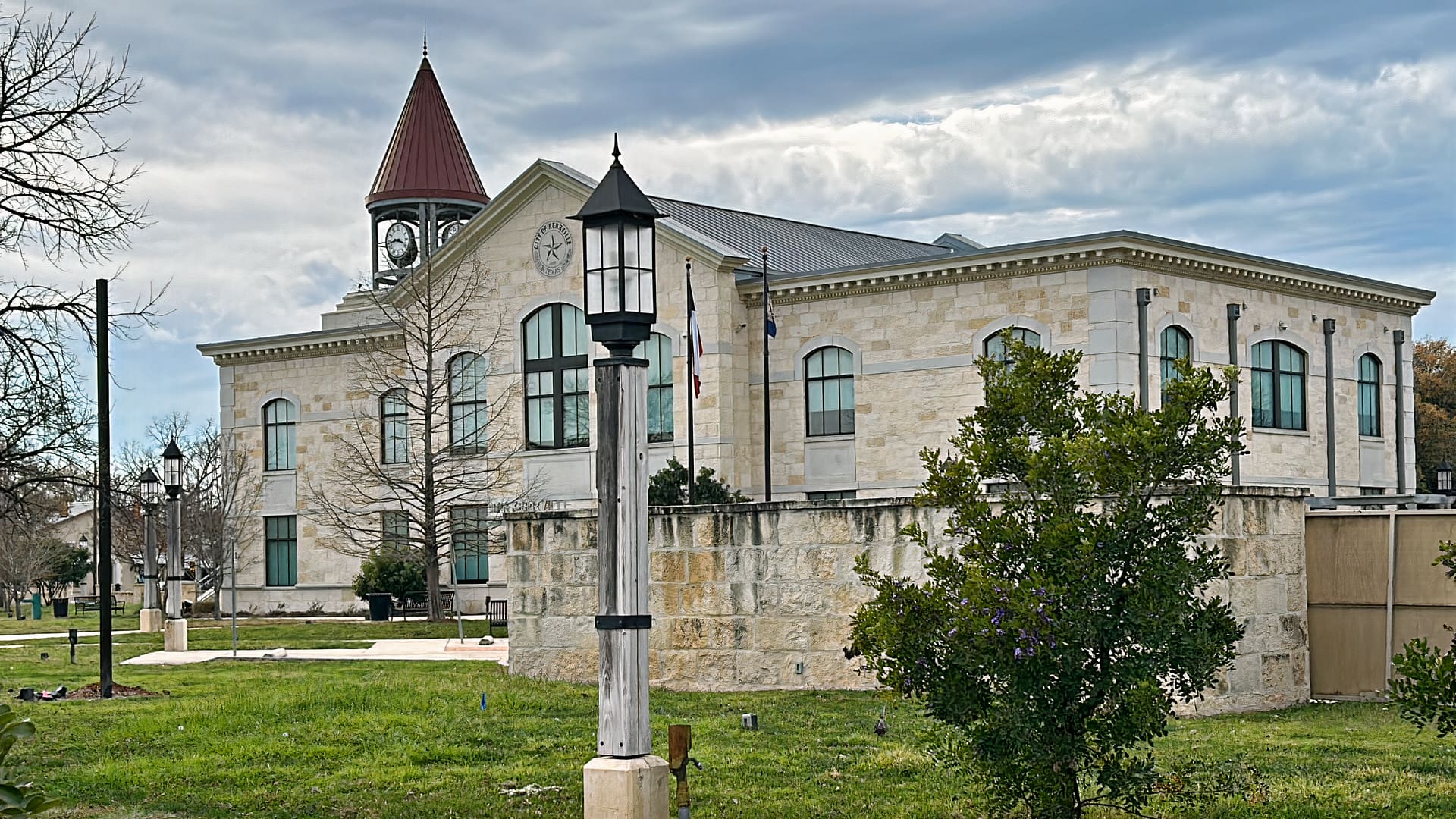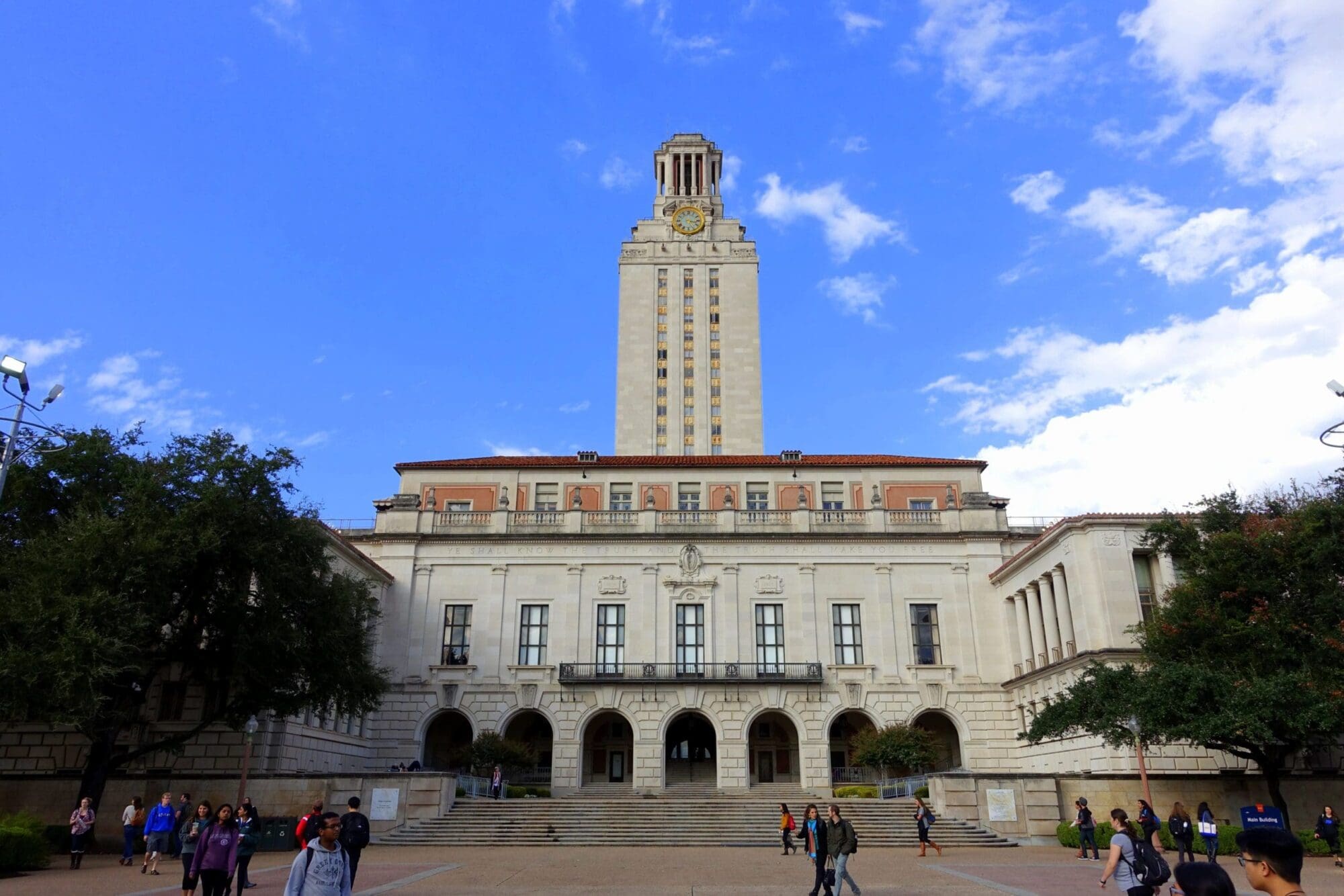KERRVILLE—City officials are debating a proposed ordinance aimed at curbing door-to-door solicitors, with questions arising about whether some of its provisions could violate the First Amendment.
Mayor Judy Eychner and City Councilmembers Roman Garcia, Jeff Harris, Joe Herring Jr., and Brenda Hughes revisited the controversial proposal in a workshop on Tuesday after tabling it earlier this month.
Kerrville City Attorney Mike Hayes was initially tasked by the council with drafting the original versions of Ordinance No. 2024-03 to update the city’s code on solicitors, peddlers, and canvassers.
His first draft limited the three groups’ hours of operation from 8:00 a.m. until 8:00 p.m. Central Standard Time—making Kerrville one of the most restrictive cities for solicitors, peddlers, and canvassers in Texas and potentially raising legal challenges.
In addition, homeowners with a “No Soliciting” sign would be off limits for the three groups, and a citywide “Do Not Knock List” would be established and distributed to permitted solicitors and peddlers.
And while there are some exceptions for permitted vendors, almost all of the three are barred from doing their activities on public property.
The drafts defined solicitors and peddlers similarly, as someone who tries to sell homeowners’ merchandise, wares, or—in the case of solicitors—future services. Those two groups would only be able to operate in the city with a permit.
Canvassers, on the other hand, would be free to operate in the city without a permit. That group was defined as people attempting to rally support for or against a religion, ideology, political party, or candidate.
A February 2 draft version was tabled after a preliminary reading by the council on February 13 and was superseded by an amended version two days later featuring only minor changes.
Attorney Tony McDonald told Texas Scorecard ahead of the council meeting he was “pretty confident” a court would throw out the proposal’s “Do Not Knock List” provision if it made it to the final version, citing free speech concerns.
During Tuesday’s discussion of the proposed ordinance, Garcia aired similar qualms with the provision. He specifically highlighted that canvassers—who the proposal states do not need permits—would be incapable of obtaining the “Do Not Knock” list.
The list is provided to those who get a permit. So that’s for solicitors and peddlers. Canvassers do not have to get a permit, so if they don’t get that, then they don’t get the list. So the question is: how are they expected to comply?
Garcia further warned that children cutting neighbors’ lawns without a relevant nonprofit or school “sponsor” could qualify them as unpermitted solicitors under the proposed ordinance, making them subject to penalties.
“Unfortunately, the average kid who is going around asking people to mow their lawns is not a nonprofit, not sponsored by charitable organizations,” Garcia said.
Other council members, like Herring, tried to alleviate concerns in the meeting about the move to consider the proposal in and around election season. Both he and Garcia are running for the city’s mayoral seat.
One resident took issue with the timing of the proposal during a question-and-answer section at the beginning of the meeting.
For campaigns with less financial resources, canvassing “is one of the few ways they have to get their message out,” the resident argued. “If someone’s a wealthy incumbent, to limit someone’s ability to electioneer at the polling place … I think it is detrimental to the uniform and equal access to the polls.”
Herring later responded: “It’s been implied that some of us who are running for office encouraged this to come to the council. I know that I didn’t. … Everyone that I’ve talked to about this ordinance has praised the concept of being left alone.”
The Tuesday session ended with all council members agreeing to remove the “Do Not Knock List” from the next version of the proposed ordinance.
However, many of Garcia’s concerns remain in it, including the time restrictions.
“Most of the amendments that we needed to see in that ordinance were not going to be passed or approved by the council,” Garcia informed Scorecard after the meeting.
“I’m disappointed that we’re actually going down this route of changing an ordinance and putting regulations on political and religious views,” he added.
The proposed ordinance will likely continue to be debated in next month’s City Council meetings before being voted on. It is expected to pass in some form.
No ads. No paywalls. No government grants. No corporate masters.
Just real news for real Texans.
Support Texas Scorecard to keep it that way!





